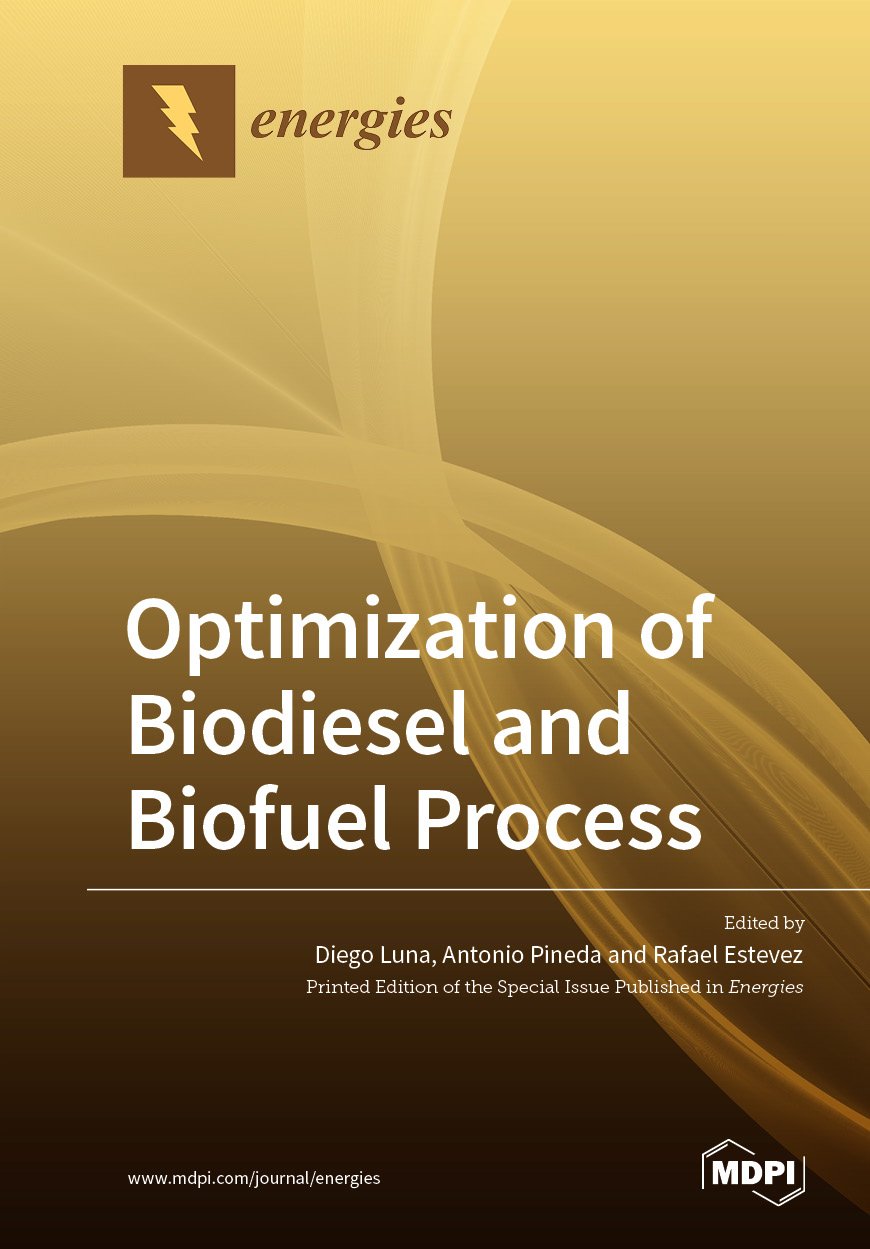Optimization of Biodiesel and Biofuel Process

Download Url(s)
https://mdpi.com/books/pdfview/book/3842Contributor(s)
Luna, Diego (editor)
Pineda, Antonio (editor)
Estevez, Rafael (editor)
Language
EnglishRésumé
Although the compression ignition (C.I.) engine, invented by Rudolf Diesel, was originally intended to work with pure vegetable oils as fuel, more than a century ago, it was adapted to be used with a fuel of fossil origin, obtained from oil. Therefore, there would be no technical difficulties in returning to the primitive design of using biofuels of renewable origin, such as vegetable oils. The main drawback is found in the one billion C.I. engines which are currently in use, which would have to undergo a modification in the injection system in order to adapt them to the higher viscosity of vegetable oils in comparison to that of fossil fuels. Thus, the gradual incorporation of biofuels as substitutes of fossil fuels is mandatory.
Keywords
biodiesel; Ecodiesel; selective ethanolysis; sunflower oil; Lipozyme RM IM; Rhizomucor miehei; ANOVA method; response surface methodology; gasoline oil blends; castor oil; biofuel; diesel engine; electricity generator; smoke opacity; Bacharach opacity; straight vegetable oils (SVO); glycerol; heterogeneous catalysis; etherification; isobutene; tert-Butyl alcohol; oxygenated fuel additives; hydrogen production; photo-reforming; Ni/TiO2; transesterification; Aspergillus terreus lipase; polydopamine; immobilization; RSM; fuel properties; diethyl ether; Bosch smoke number; vacuum fractionation; fuel; fatty acids composition; ethyl acetate; straight vegetable oils; vegetable oil blends; biofuels; soot emissions; engine power outputWebshop link
https://mdpi.com/books/pdfview ...ISBN
9783036502786, 9783036502793Publisher website
www.mdpi.com/booksPublication date and place
Basel, Switzerland, 2021Classification
Research and information: general
Technology: general issues

